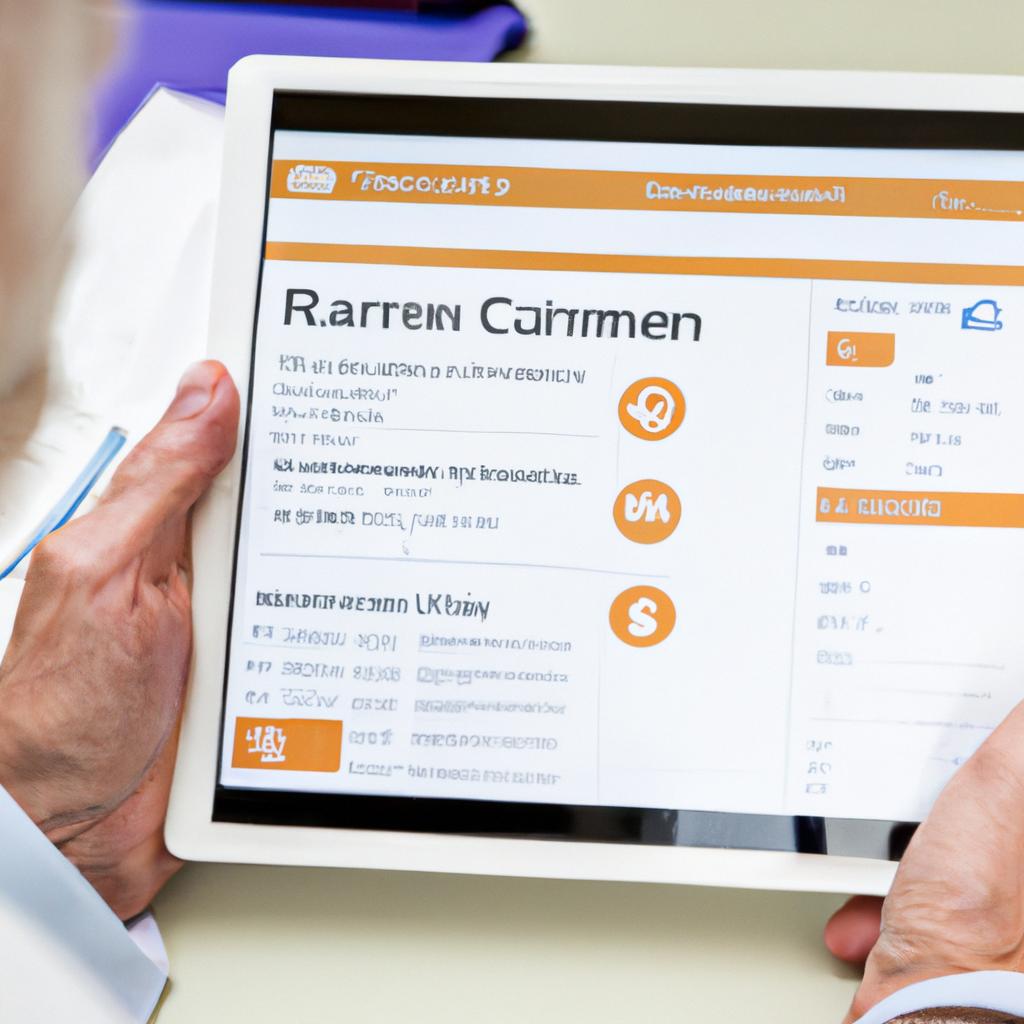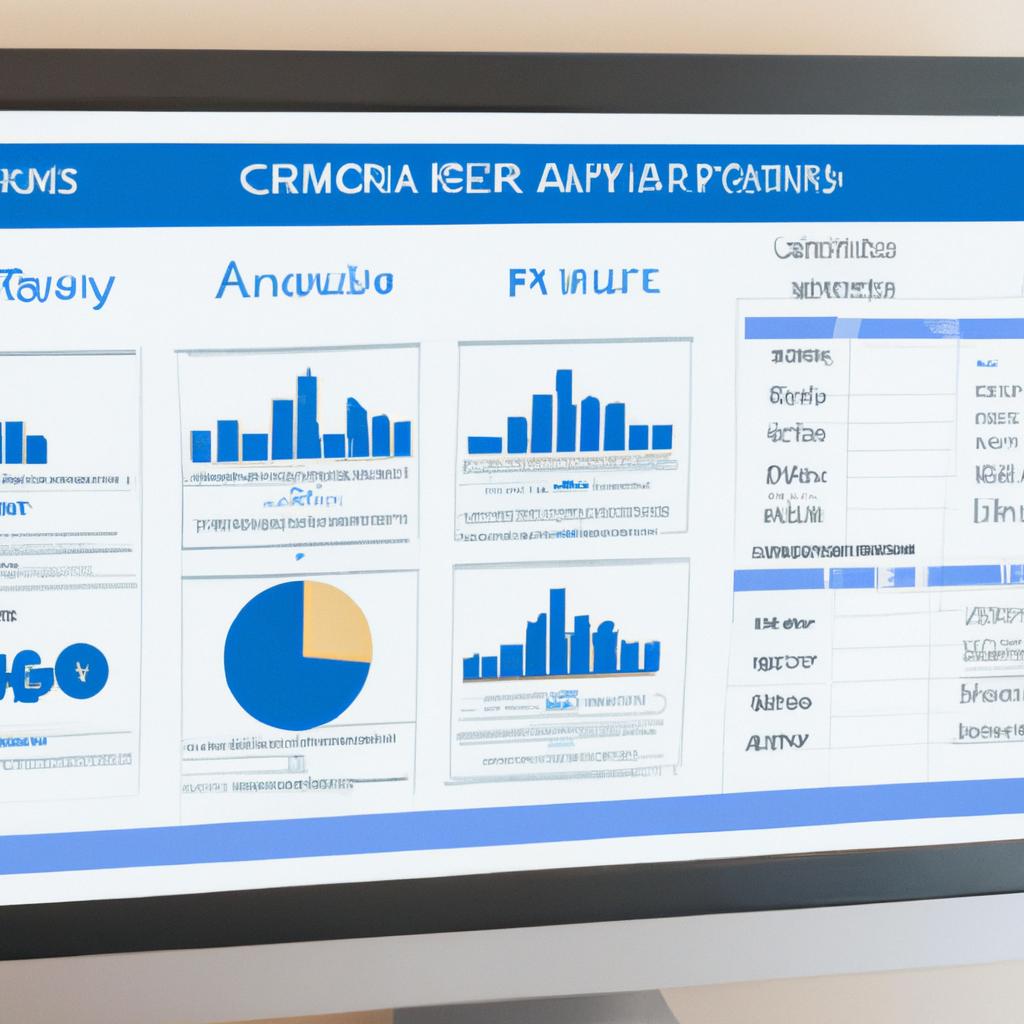Best CRM Software for Healthcare Industry: The Ultimate Guide
As the healthcare industry continues to evolve, healthcare providers are looking for ways to streamline their operations and provide better patient care. One of the most effective ways to do this is by implementing Customer Relationship Management (CRM) software. In this article, we will explore the best CRM software for the healthcare industry, highlighting the key features, benefits, and drawbacks of each option.
Introduction

In simple terms, CRM software is a tool that enables businesses to manage their interactions with customers. In the healthcare industry, CRM software is designed to help healthcare providers manage patient interactions and improve patient outcomes. The software can help healthcare providers to manage patient data, automate workflows, and engage with patients in a more meaningful way. In this article, we will explore the importance of CRM software in the healthcare industry and provide an overview of the best options available.
Key Features of CRM Software for Healthcare Industry

CRM software for the healthcare industry comes with several useful features that can help healthcare providers to improve patient outcomes. Here are the key features to look for when choosing the best CRM software for your healthcare organization:
Data Management
Data management is one of the most important features of CRM software for the healthcare industry. The software should be able to store and manage patient data securely, including medical history, test results, and personal information. It should allow healthcare providers to easily access and update patient records, ensuring that patient data is always up-to-date.
Automated Workflows
Automated workflows can help healthcare providers to streamline their operations, saving time and improving efficiency. The software should be able to automate routine tasks, such as appointment scheduling and patient follow-up, freeing up healthcare providers to focus on more complex tasks.
Integration with EHR Systems
Integration with Electronic Health Record (EHR) systems is essential for healthcare providers. The software should be able to integrate with existing EHR systems, allowing healthcare providers to access patient data seamlessly.
Customization Options
Customization options are important, as they allow healthcare providers to tailor the software to their specific needs. The software should be flexible, allowing healthcare providers to customize workflows and data fields to match their specific requirements.
Analytics and Reporting
Analytics and reporting features can help healthcare providers to gain insights into patient outcomes and identify areas for improvement. The software should provide detailed analytics and reporting capabilities, allowing healthcare providers to track patient progress and identify trends over time.
Patient Engagement Tools
Patient engagement tools are becoming increasingly important in the healthcare industry. The software should provide tools to engage with patients, such as patient portals and messaging systems, allowing healthcare providers to communicate with patients more effectively.
Top CRM Software for Healthcare Industry
When it comes to choosing the best CRM software for the healthcare industry, there are several options available. Here are the top six CRM software options for the healthcare industry:
A. Salesforce Health Cloud
Salesforce Health Cloud is a popular CRM software for the healthcare industry. It offers a range of features, including patient management, care coordination, and analytics. The software is designed to help healthcare providers manage patient data more efficiently and improve patient outcomes.
B. Cerner HealtheIntent
Cerner HealtheIntent is another popular option for healthcare providers. The software is designed to help healthcare providers manage patient data across the continuum of care. It offers a range of features, including patient engagement tools, analytics, and care management.
C. SugarCRM
SugarCRM is a flexible and customizable CRM software that can be tailored to meet the specific needs of healthcare providers. It offers a range of features, including patient management, workflow automation, and analytics.
D. Microsoft Dynamics 365 Healthcare
Microsoft Dynamics 365 Healthcare is a comprehensive CRM software that offers a range of features, including patient management, care coordination, and analytics. The software is designed to help healthcare providers improve patient outcomes and streamline their operations.
E. Zoho CRM
Zoho CRM is a cloud-based CRM software that offers a range of features, including patient management, marketing automation, and analytics. The software is designed to help healthcare providers improve patient engagement and streamline their operations.
F. HubSpot CRM
HubSpot CRM is a free CRM software that offers a range of features, including patient management, marketing automation, and analytics. The software is designed to help healthcare providers improve patient engagement and streamline their operations.
Comparison of the Best CRM Software for Healthcare Industry
When it comes to choosing the best CRM software for the healthcare industry, there are several factors to consider. In this section, we will compare the top CRM software options based on pricing, user interface, implementation and training, data security and compliance, and customer support.
Pricing
Pricing is a crucial factor to consider when choosing a CRM software for healthcare industry. The cost of the software will depend on the features and functionalities it offers, as well as the number of users. Some software options charge a flat rate per user, while others charge based on the number of contacts or patients.
User Interface
The user interface of a CRM software is crucial for its adoption and day-to-day use. A user-friendly interface can save time and increase productivity, while a complex interface can lead to frustration and decreased efficiency. When comparing CRM software options, it is essential to consider the ease of use and the overall user experience.
Implementation and Training
Implementing a CRM software in a healthcare organization requires a significant investment of time and resources. It is essential to choose a software option that offers comprehensive implementation and training support. Some software options provide on-site training, while others offer online training modules and resources.
Data Security and Compliance
In the healthcare industry, data security and compliance are of utmost importance. Healthcare organizations must comply with HIPAA regulations and protect patient data from cyber threats. When comparing CRM software options, it is essential to evaluate the security measures in place and the software’s compliance with industry regulations.
Customer Support
Finally, customer support is an essential factor to consider when choosing a CRM software for healthcare industry. Healthcare organizations need reliable support to address any issues or concerns that may arise during the software implementation and day-to-day use. It is essential to choose a software option that provides responsive and knowledgeable customer support.
How to Choose the Best CRM Software for Healthcare Industry
Choosing the right CRM software for your healthcare organization can be a daunting task. With so many options available, it can be challenging to know where to start. Here are some tips to help you choose the best CRM software for your healthcare organization:
Identify your organization’s needs
Before you start researching CRM software options, it’s essential to identify your organization’s needs. Consider what features you need, such as data management, patient engagement tools, analytics and reporting, and integration with EHR systems.
Research and evaluate available options
Once you have identified your organization’s needs, it’s time to start researching and evaluating available options. Look for software that meets your needs and has a proven track record in the healthcare industry. Read reviews and ask for recommendations from other healthcare providers.
Consider budget and scalability
Budget is always an important consideration when choosing software. Make sure you choose a CRM software that fits within your budget and is scalable for future growth. Consider the costs of implementation, training, and ongoing support.
Test the software with a free trial or demo
Before committing to a CRM software, it’s essential to test it out. Most software vendors offer free trials or demos, which allow you to test the software’s features and functionality. Take advantage of these opportunities to ensure the software meets your needs.
Choose a vendor with experience in the healthcare industry
Finally, it’s crucial to choose a vendor with experience in the healthcare industry. Healthcare regulations and standards are continually evolving, so it’s essential to choose a vendor that understands the unique needs and challenges of the healthcare industry. Look for a vendor with a proven track record of success in the healthcare industry.
Conclusion
In conclusion, choosing the right CRM software is critical for healthcare providers looking to improve patient outcomes and streamline their operations. Salesforce Health Cloud, Cerner HealtheIntent, SugarCRM, Microsoft Dynamics 365 Healthcare, Zoho CRM, and HubSpot CRM are all excellent options to consider. When selecting a CRM software for your healthcare organization, it is important to identify your needs, research and evaluate available options, consider budget and scalability, test the software with a free trial or demo, and choose a vendor with experience in the healthcare industry.
By implementing a CRM software, healthcare providers can improve patient engagement, increase operational efficiency, and ultimately, provide better patient care. Whether you are a small clinic or a large hospital, the right CRM software can help you to achieve your goals and take your healthcare organization to the next level. So, take the time to explore your options and choose the CRM software that is right for you and your patients.

Comments are closed.